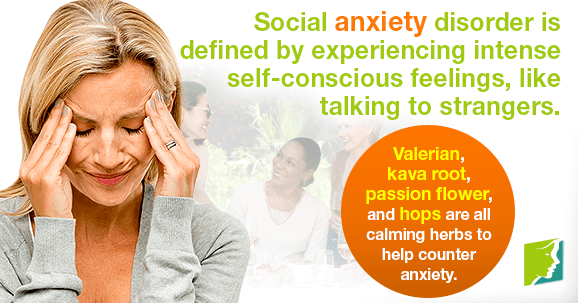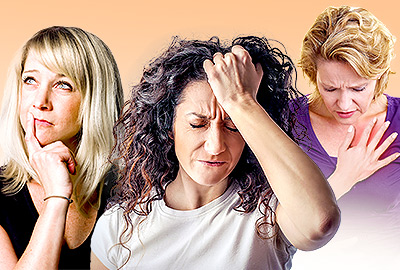Anxiety disorders affect around 40 million Americans on average, occurring two times more in women than in men. Anxiety is defined as a psychological state of constant worry, and social anxiety disorder is a type of anxiety that is described as the overwhelming fear of being humiliated in public. Social anxiety in middle-aged women can be triggered by hormone fluctuations experienced during the menopause transition. It can interfere with daily life and the ability to maintain relationships.
What Is Social Anxiety Disorder?
Social anxiety disorder, also known as social phobia, is defined by intense, self-conscious feelings in everyday social situations. People suffering from social anxiety have a strong fear of being watched and judged by others. They get embarrassed easily and have difficulty facing social situations like public speaking, eating and drinking in front of others, and interacting with people, especially strangers.
Causes of Social Anxiety
Causes of social anxiety disorder can range from anything like stress and genetics to previous emotional trauma. However, the leading cause of social anxiety in middle-aged women is hormone fluctuations experienced during menopause. Moods and emotions are heavily influenced by the main female sex hormone, estrogen. When estrogen fluctuations and sharply declines during menopause, women often experience a myriad of symptoms, including anxiety.
Symptoms of Social Anxiety
Physical symptoms of social anxiety can include:
- Blushing
- Sweating
- Trembling
- Rapid heartbeat
- Difficulty speaking
- Muscle tension
- Nausea
Behavioral symptoms include:
- Negative thoughts
- Overanalyzing their own social performances
People with social anxiety disorders typically avoid social situations, like dates and parties, as much as possible.
Treatment Options
Exercise
Getting regular exercise is the key to reducing stress and promoting the release of “feel-good” neurotransmitters, like serotonin. This means at least 30 minutes of aerobic activity daily at least five times a week. Walking, yoga, and swimming are all good forms of low-impact workouts that can help lessen anxiety symptoms. Exercise has been shown to significantly increase energy, lift mood, and improve sleep.
Eat healthy
Making simple dietary changes can be beneficial in helping you feel your best and reducing anxiety symptoms. Including protein, fiber, fatty acids, and fruits and vegetables into meals is ideal for optimum performance and boosting energy. Avoid excessive caffeine and alcohol consumption, as well as processed and fried foods.
Herbal remedies
Herbs that possess sedative properties can be very helpful in treating anxiety. Valerian, kava root, passion flower, and hops are all calming herbs to help counter anxiety.
See a doctor
Seeking professional help is highly recommended if you think you are suffering from social anxiety disorder. A combination of talk therapy and prescription medication is effective for treating these disorders.
Social anxiety disorder is defined by experiencing intense self-conscious feelings when faced with everyday social situations, like talking to strangers and eating in public. Middle-aged women are at an even higher risk of developing social anxiety because of hormone fluctuations women experience during menopause. Social anxiety is manifested by extreme shyness and discomfort in social settings. Exercising, trying herbal remedies, and seeking professional help is recommended in order to get properly diagnosed and find out which treatment is best for you.
Sources
- National Institute of Mental Health. (n.d.). Anxiety Disorders. Retrieved October 1, 2014, from http://www.nimh.nih.gov/health/publications/anxiety-disorders/index.shtml
- Office on Women's Health. (n.d). Anxiety disorders fact sheet. Retrieved October 1, 2014, from http://www.womenshealth.gov/publications/our-publications/fact-sheet/anxiety-disorders.html




